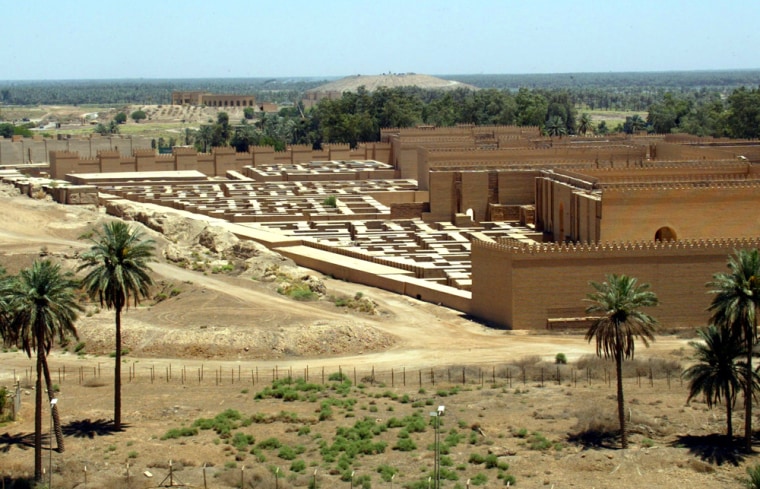A senior U.S. military officer has said he is willing to apologize for damage his troops caused to one of Iraq’s most famous ancient sites.
The British Broadcasting Corp. reported Friday that after the 2003 invasion of Iraq, U.S. Marines had built a helicopter pad on the ruins of Babylon and filled their sandbags with archaeological fragments from the ancient city. It said vibrations from U.S. helicopters caused the roof of one building to collapse.
Col. John Coleman, former chief of staff for the 1st Marine Expeditionary Force in Iraq, told the BBC that if the head of the Iraqi antiquities board wanted an apology, and “if it makes him feel good, we can certainly give him one.”
But he also asked: “If it wasn’t for our presence, what would the state of those archaeological ruins be?”
The Marines spent five months in 2003 based at Babylon, 50 miles south of Baghdad.
Last year, the British Museum said that U.S.-led troops using Babylon as a base had damaged and contaminated artifacts dating back thousands of years.
The German Archaeological Institute said U.S. and Polish troops based at Babylon had caused “massive damage” to the site in 2003 and 2004.
Coleman said his Marines had worked in “close consultation” with Iraq’s State Board of Antiquities.
He said occupying the site was better than leaving it to looters in the chaos of postwar Iraq.
“Is there a price for the presence? Sure there is,” he said. “I’ll just say that the price had the presence not been there would have been far greater.”
For more than 1,000 years, Babylon was one of the world’s finest cities, where Nebuchadnezzar II built the Hanging Gardens, one of the seven wonders of the ancient world. The city declined and fell into ruin after it was conquered by the Persians under Cyrus the Great around 538 B.C.
